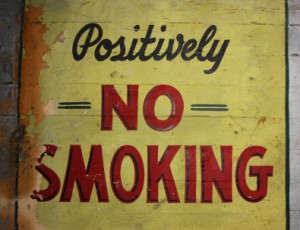How the Best Leaders Build Trust
The following is a guest blogpost by Rick Lepsinger of OnPoint Consulting. You can connect with Rick directly at rlepsinger@onpointconsultingllc.com.
—
Several years ago, tech giant Google set out on an ambitious research quest to build the perfect team. The project examined a host of factors, including team composition, management style, and task management, poring through a mountain of quantitative and qualitative data over the course of several years to identify what factors made teams successful. When the study concluded, the final results were actually quite simple.
What mattered most to a team’s success wasn’t how it was put together, how it carried out its tasks, or how quickly it worked. Instead, it came down to a single word:
Trust.
Teams in which members trusted one another were far more likely to take risks, ask questions, admit mistakes, and offer new ideas than teams with low levels of trust. Intuitively, this should not have come as a surprise. People feel more secure when they trust those around them, which allows them to focus their energy on the tasks at hand rather than constantly assessing where they stand with others.
In today’s team-driven business world, building a culture based on trust is one of the most important responsibilities facing leaders in all types of organizations. While companies may go to great lengths to establish a culture that encourages trust, it falls upon individual leaders to follow through with those intentions and bring that level of trust to their teams.
In order to build trust strong enough to endure, leaders must first understand the essential elements of trust and recognize how they relate to one another. One way to think about the essential elements is to use the Trust Equation, as put forth in the book The Trusted Advisor.
Credibility
It’s difficult for a leader to build trust if they don’t have a proven track record of achieving results and demonstrating their expertise. Team members need to see their leader as a credible source of authority and information. If they don’t, they may second-guess decisions or become disengaged from the rest of the team.
Establishing credibility takes time and effort. Team members often need to see that someone knows what they’re talking about before they can place their trust in them. Leaders can, however, take a number of actions in their day-to-day dealings to improve their credibility. Avoiding exaggerations, answering direct questions with direct answers, and offering viable solutions to problems will help demonstrate to team members that they’re committed to being truthful and focusing on measurable results.
The best path to earning credibility is through building relationships with team members over time. Establishing a reputation for honesty by encouraging transparency and admitting when they don’t know something allows leaders to show they’re committed to the team’s success and not out to bolster their own reputations.
Team members need to trust that leaders stand behind what they say and do. They should not selectively disclose information or only emphasize positives while downplaying negatives. Should leaders lose that reputation for truthfulness, they run the risk of being seen as self-serving, manipulative, or unconcerned for their team’s success.
Reliability
If leaders need credibility coming into a team environment, they must show that people can count on them to follow through on their word if they want to succeed in the long term. Unreliable leaders who make big promises but seldom act on them will quickly lose whatever trust they’ve built. Team members need to know that their leader will be there for them and will keep whatever promises they’ve made.
While it’s easy to think of reliability only in terms of tasks and official responsibilities, it can extend to interpersonal dealings as well. A leader who always does their job can still lose the team’s trust if they make a habit of brushing off commitments and not following through on smaller issues on a regular basis.
Reliability needs to be established over time, but it can often go unnoticed if leaders don’t make the work they’re doing visible to others. Regular communication and transparency are extremely valuable in building a reputation for reliability. Clarifying roles within the team also helps to establish accountability by making it clear who is responsible for which tasks.
Intimacy
By this point, it should be clear that building trust is about establishing relationships. Intimacy, or the act of communicating and empathizing with others on a personal level, is a crucial part of this process. Regardless of their position within an organization, people want to know that they (and their work) are valued. Leaders must find ways to create connections with their team members that allow them to provide the professional and emotional support they need.
Team members also need to trust leaders to be discreet with the information and issues they share with them. This is particularly important for conflict resolution and internal feedback. If employees don’t trust leaders to show consideration in handling that information, they’ll be less likely to share it in the first place, which can only make existing problems worse over time.
Building healthy intimacy in a team environment requires a great deal of effort. Team-building activities that allow people to get to know one another outside the context of work are an effective method for deepening interpersonal relationships. Leaders can also set aside time to talk to team members regularly, allowing them to voice concerns or share their thoughts. This accessibility gives leaders an opportunity to demonstrate empathy and address issues before they become problematic.
Setting up internal community pages, social media groups, or message boards can help employees connect with one another in ways that go beyond their work responsibilities. Building these connections makes it easier for them to trust one another in difficult times because they can see what they have in common.
Self-Orientation
Good leadership often requires an individual to put the interests of others first. Leaders therefore need to be aware of whose interests are motivating their decisions and actions. A leader who constantly does things to make themselves look good, such as taking credit for the team’s work or asserting themselves purely to show off their expertise, will very quickly erode whatever trust they’ve built with their team.
Self-orientation can also impact the perception of credibility and reliability. A manager with extensive knowledge and a proven track record for success might normally be seen as credible, but if their actions suggest that they care more about furthering themselves at the expense of others, they will find it difficult to leverage that experience with their teams. This kind of self-serving behavior also makes it harder for people to see them as reliable. It’s difficult to count on someone who has a reputation for only being out for themselves.
Anyone in a leadership position is going to have their actions closely scrutinized. Leaders must be sure to take their team members into consideration whenever they make decisions. Here again, communication is vital. People are better able to accept decisions when they know their opinions or concerns were genuinely heard and considered.
Identifying Trust Issues
As Tolstoy famously observed, “Happy families are all alike; every unhappy family is unhappy in its own way.” The same can be applied to successful teams and failing teams, especially when it comes to trust. Effective teams may be structured differently, but they all exhibit the same fundamental elements of trust. Ineffective or dysfunctional teams, however, can take a number of forms, depending upon the root causes of distrust.
Many factors can make it difficult to establish trust or undermine it over time. One of the biggest warning signs of trust issues is deflection of responsibility. When no one accepts accountability for their actions, they’re sending a message that they don’t care about anyone but themselves. While this is bad enough from team members, it is absolutely toxic when the leader refuses to take responsibility because it makes trust almost impossible to establish.
Dysfunctional teams might also be riven by harmful gossip and backstabbing. Without proper intimacy and self-orientation, team members assume the worst from one another and question the intentions behind every action and behavior. Even worse, they rarely direct their criticisms at the person they’re upset with, instead sharing their negative thoughts with coworkers and undermining whatever sense of camaraderie might have existed on the team. When leaders speak ill of someone, other team members begin to wonder what might be said about them when they’re not around.
Healthy, effective teams thrive on interpersonal interactions. When team members stop relating to one another on a personal level, keeping all conversations to “strictly business,” deeper trust issues might well be at work. Effective communication requires a level of comfort. If team members aren’t comfortable communicating with each other, then they’re also likely to find it difficult working together in general. When leaders become distant and aloof, employees may begin to question their intentions or true goals.
While healthy teams celebrate wins as a group, dysfunctional teams often break down into a collection of individuals bent on pursuing their own goals. Rather than focusing on how to make the team succeed, a team member might instead focus on how to make themselves look good regardless of the team’s outcome. Leaders who become caught up in pursuing their own goals will quickly lose their team’s trust. Even worse, this behavior could very well encourage people to “save themselves” by focusing on avoiding responsibility for the team’s failures.
Establishing trust is one of the most vital tasks facing any leader in a team environment. While the talent of individual team members is obviously important, much of that talent will go to waste if the team is rendered dysfunctional by a lack of trust. Leaders must find effective strategies that leverage their credibility and reliability to facilitate better, more authentic communication. By establishing closer connections based on intimacy and proper self-orientation, leaders can avoid the damaging effects of losing trust within their teams.

 Would you risk your company’s reputation in an attempt to save what amounts to 0.16% of your annual revenue?
Would you risk your company’s reputation in an attempt to save what amounts to 0.16% of your annual revenue? Superficially, they couldn’t be more different. One is old (and old school), one isn’t. One is in middle market banking, one in social media. Tie, open collar. Midwest, East.
Superficially, they couldn’t be more different. One is old (and old school), one isn’t. One is in middle market banking, one in social media. Tie, open collar. Midwest, East. I smoked cigarettes until I was in my mid-forties. I smoked pretty heavily–more than two packs a day–and had done so pretty much forever (despite running the Montreal Marathon back in 1982, when I quit for several days).
I smoked cigarettes until I was in my mid-forties. I smoked pretty heavily–more than two packs a day–and had done so pretty much forever (despite running the Montreal Marathon back in 1982, when I quit for several days). During a recent conversation, a friend–General Counsel for a large listed company–mentioned that she does not feel appreciated by her CEO for all the work she does; and that feels disheartening.
During a recent conversation, a friend–General Counsel for a large listed company–mentioned that she does not feel appreciated by her CEO for all the work she does; and that feels disheartening. Beginning just three years ago, some large firm legal fees reached that amount – about $17/minute – providing fodder for legal bloggers, and Internet articles on a variety of topics, including
Beginning just three years ago, some large firm legal fees reached that amount – about $17/minute – providing fodder for legal bloggers, and Internet articles on a variety of topics, including